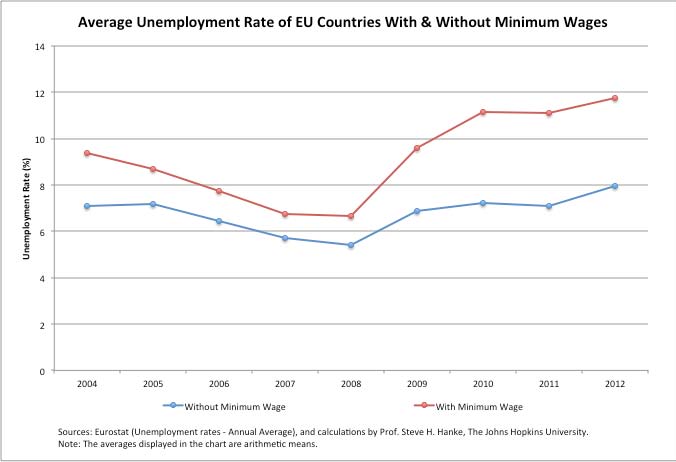If you’re not yet convinced that a government-mandated minimum wage represents a “cruel hoax” on the workers with the least amount of skills, perhaps Europe’s experience with minimum-wage laws will change your mind.
President Obama set the chattering classes abuzz after his unilateral announcement to raise the minimum wage for newly hired Federal contract workers. During his State of the Union address, he sang the praises for his action, saying that “It’s good for the economy; it’s good for America.” Yet this conclusion doesn’t pass the economic smell test; just look at the data from Europe.
There are seven European Union (EU) countries with no minimum wage (Austria, Cyprus, Denmark, Finland, Germany, Italy, and Sweden). If we compare the levels of unemployment in these countries with EU countries that impose a minimum wage, the results are clear – a minimum wage leads to higher levels of unemployment. In the 21 countries with a minimum wage, the average country has an unemployment rate of 11.8%; whereas, the average unemployment rate in the seven nations without a minimum wage is about one third lower – at 7.9%.
Nobelist Milton Friedman said it best when he concluded that “The real tragedy of minimum wage laws is that they are supported by well-meaning groups who want to reduce poverty. But the people who are hurt most by high minimums are the most poverty stricken.”



